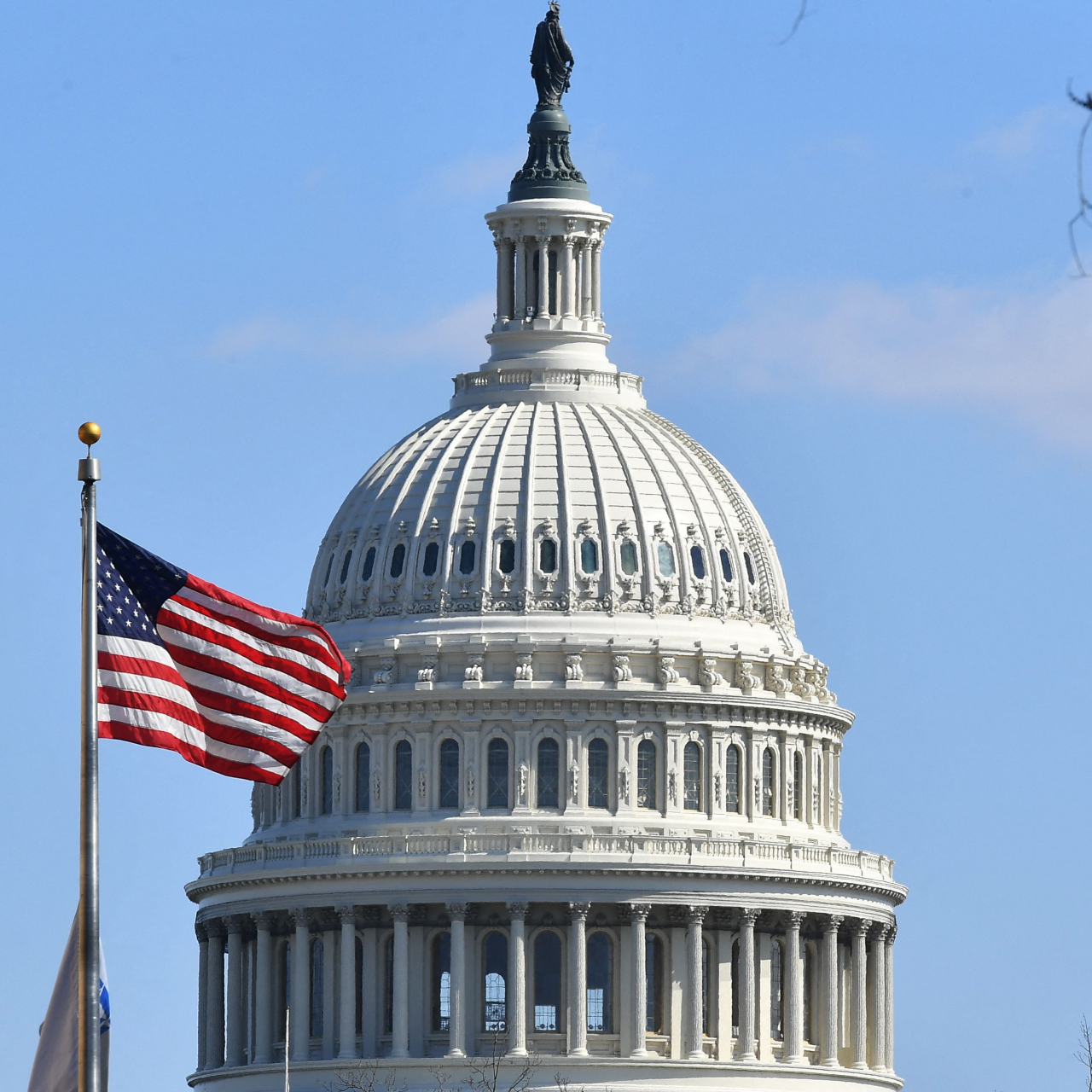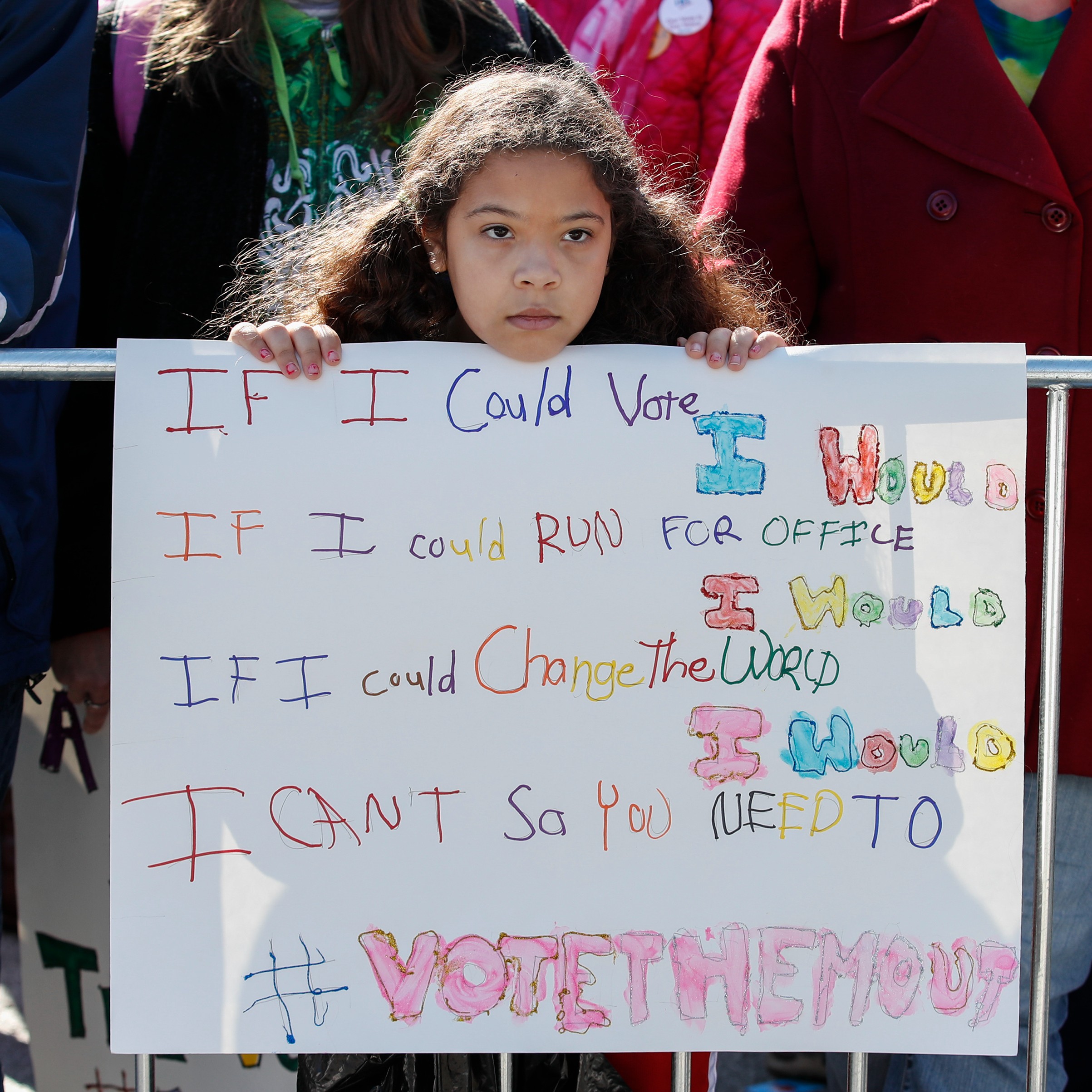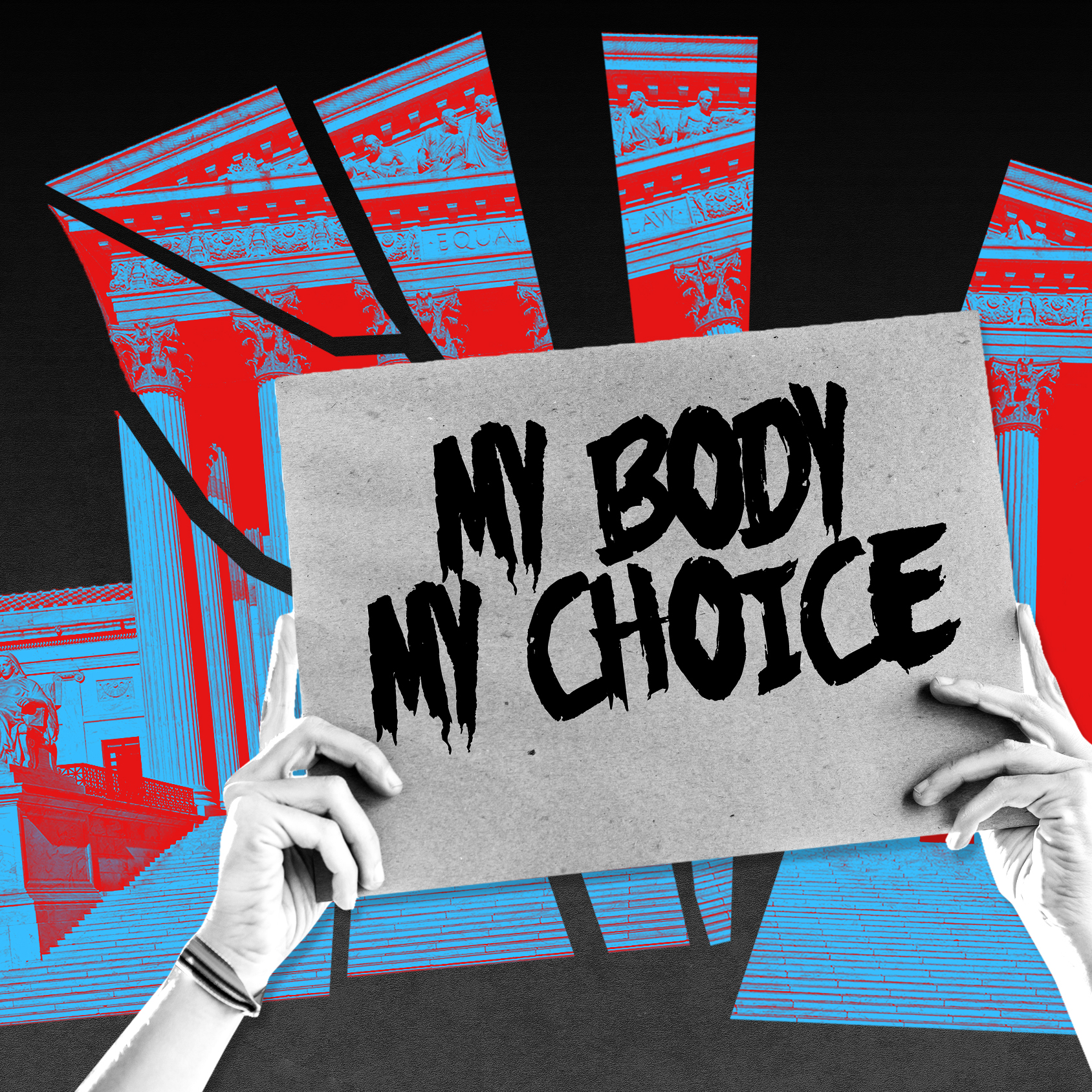This Bill Wants to Stop Anti-Abortion Groups From Getting Your Private Data. Period
The end of Roe v. Wade means period tracking apps and search history suddenly have serious implications. Congresswoman Sara Jacobs discusses how her My Body, My Data bill would protect against those.


Last month, the Supreme Court ruled to overturn Roe v. Wade, a decision that has impacted access to essential health care and abortion for millions of women. Trigger bans have gone into effect across the country, forcing those who are pregnant to fear for their lives. In states like Oklahoma, abortion is now a crime of murder and women could go to jail for seeking necessary medical treatment like abortion.
Such extreme laws will impact millions of women—and become even more dangerous with continued broad access to reproductive health data. While you may believe that your health information is safe, data from period tracking apps is actually not protected under the Health Insurance Portability and Accountability Act (HIPAA). Additionally, according to a 2019 study published in The BMJ, 79 percent of sampled health apps available through the Google Play store regularly shared user data and were described as “far from transparent.” Despite many period tracking apps promising to protect user data, it remains unregulated and women have to put their trust—and even their lives—in the hands of corporations.
Before the SCOTUS ruling, I sat down with Congresswoman Sara Jacobs (D-CA) to learn more about her My Body, My Data Act, which she introduced on June 16, 2022, and how it addresses data and safety concerns for women.
Emily Tisch Sussman: With My Body, My Data, how are you thinking about a post-Roe world?
Congresswoman Sara Jacobs: Look, I think the first and most important thing is that we in Congress do our job and codify the right to abortion into law so that we're not relying on the courts. However, in the world we live in right now, we probably don't have the votes for that in the Senate. There's a whole range of other things we need to and can be doing to protect people [who are in need of an abortion]. In places like Texas, there are severe anti-abortion laws that not only are about law enforcement being able to enforce them, but individual people.
So, right now, the way it works is if you enter into a search history or a search engine a question about reproductive health or sexual health and you're using a period tracking app, a fertility tracking app, or anything like that, your data is not really protected. Companies can sell or share your data to really anybody and they can collect as much of it as they're able to through the app or the search engine. What this bill would do is state that [a company] can only collect and store the data that is strictly necessary for the service [it’s] providing. If you're running a period tracking app, you can only collect the very specific data that you need. And then, with a few exceptions, you cannot share or sell it. This will be enforced by the Federal Trade Commission (FTC). This will be important so that, for instance, if in Texas, a private non-profit group decided they wanted to start buying up all this data from these apps and create a matrix of who should be pregnant but isn't and then go and get their bounty for turning them in, this would protect against something like that.
RELATED READING

ETS: Just to be really clear about that, we're talking about groups—that would probably be anti-abortion groups—that would buy search history data? Then, a private citizen, like a regular person, could go seek out that woman who conducted these searches and check to see if they were pregnant or not? And then, if it was a state like Texas where a [private citizen] can turn someone in for getting an abortion, they could sue you, right? Or, they could turn you in for potentially getting an abortion, so even if you’ve had a miscarriage, they could still alert authorities that you’ve potentially had an abortion?
Stay In The Know
Get exclusive access to fashion and beauty trends, hot-off-the-press celebrity news, and more.
SJ: That's exactly right. And that's what this bill will protect against. It also protects those where law enforcement is trying to enforce these anti-abortion laws. Basically, the idea is if these companies aren't allowed to collect and store the data, then the data is not there for a search warrant or something of that nature. I think about it like a bathtub: This bill basically drains the water from the bathtub so if law enforcement came and found the bathtub, there'd be nothing in it.
ETS: You've been quite open about the fact that you've gone through IVF and are thinking about your own personal reproductive future. How has your own journey played into your thinking about what the overturning of Roe v. Wade could mean for assisted reproduction?
SJ: I very publicly froze my eggs at the end of last year. That was another thing I had to do a lot of education about with some of my colleagues. And honestly, even with my friends, everyone's either freezing their eggs, talking about freezing their eggs, having babies, or wondering when they're going to have babies. So, the fact that that was the number one topic of conversation among my friends and peer groups, but not something we ever heard about in Congress was one of the reasons I decided to do it so publicly. And, you know, again, it's why when the draft decision came out, I started getting a ton of text messages from my friends asking, “Should I delete this app?”
We know that the folks on TikTok and other spaces are having those same concerns. It’s not just about period tracking. It's not just about abortion, but as you said, it's also about the full range of reproductive health and the options that are available. I actually started using a period tracking app because of my egg freezing and because I needed to track very closely when I was ovulating. What we need to be thinking about is, yes, we need to codify the right to abortion into law. That's priority number one. But, there are so many other things we can also be doing to make sure we're protecting people in the meantime, like this bill on reproductive health data, like making sure that we are continuing to provide people access to birth control, to assisted fertility, to the full range of reproductive health options.
To this point, another thing that I'm working on is actually making sure our military members have access to that full range of reproductive health options, making sure that insurance covers assisted fertility in many different instances, and not just the really narrow ones that they do right now. This way we can give people the ability to make the decision for themselves about when, how, and if they want to become a parent or if they don't want to become a parent at all.
ETS: What piece of the overturning of Roe v. Wade do you feel the most concerned about?
SJ: I mean, it's really hard to pick, right? My youngest sibling is trans and my middle sibling is gender non-conforming. And so, you know, as we're talking about all of this, it's not just about women, right? There are so many people who are going to be affected by this. It's not just reproductive health care, it's all kinds of gender-affirming care.
The way I'm thinking about it is like, yes, it matters to me, because reproductive health care is my health care and I'm going through this process myself and I use these apps. However, the things we need to make sure we're focused on the most are the protections we can put in place for those people who are going to be the most impacted, which are low-income communities, which are people of color that we know already have a hard time accessing the services even [where they are currently legal]. That's where, again, these privacy concerns with reproductive health data are really important because these people will also be the ones most impacted by the ability for these groups or others to collect their data and go after them.
ETS: How likely is it that the My Body, My Data bill becomes law and what can we all do to help?
SJ: I'm feeling really hopeful that we'll be able to pass it through the House. But, as we all know, the challenge is in the Senate. I think we are all very acutely aware of what it would take to get anything through the Senate, so we are working on it. We have Senate partners that we're working very closely with. One of the other ways I'm thinking about this bill is that it can actually be a model for states who want to put these protections in place. We don’t need to only do it at the federal level.
I think the most important thing anyone can do is talk about these issues, normalize talking about reproductive health, normalize talking about abortions, talking about periods. I've been so moved by my colleagues who have spoken openly about the abortions that they’ve had. I think those kinds of things are really important. We must continue to tell the story about why this matters. Why what apps you use matters, why data privacy matters, why access to reproductive and sexual health matters. All of those stories are incredibly important as we work to change the conversation around these issues and really destigmatize this topic. We don't need to pretend like women and other people don't get periods—it's okay to talk about these things. These are things that have led to a lot of us being ashamed of our own bodies for no reason.
ETS: You alluded to the likelihood of it passing, which is hopefully soon. Is there anything the White House can do administratively, or does it have to come from Congress? And where do you see the politics falling on the issue? It's a very new issue, which is good, as new issues don't typically have party lines baked into them. Where are you seeing this bill line up?
SJ: In terms of the Biden administration, I know that they are currently looking at all of the options they have to protect people in a post-Roe World. We've got amazing people working there on the Council on Gender Equality, who are really trying to make sure that every lever they have is pulled.
In terms of the partisanship, look, the fact of the matter is privacy is actually not a progressive issue, right? I think everyone can agree that you want your most personal, sensitive health data to be protected, that it can't just be shared or bought by anyone who wants access to it. It seems to be a pretty baseline thing and honestly something that a lot of conservatives should be able to get behind.
ETS: What do you say to your friends who are asking you if they should delete their apps?
SJ: A big piece of this is about your search history or search engines. It is about apps, yes, but it’s also about websites and making sure that these companies are only collecting the data they need to provide the service. This is the time for us, as government, to do our job and put protections in place so that Americans can use helpful services like these without worrying about their data safety. I do think that there's a real conversation we need to be having about what data protection looks like right now, in this world, where we don't have this bill enacted into law. There are real concerns around how your data can be used. I'm not going to tell anyone to use or not to use something. I will say, though, that some of our partners who we are working with on this bill, who are data privacy advocates, are concerned about the time between now and when we get this bill enacted into law.
You can find more information about the My Body My Data Act on Congresswoman Jacobs's Instagram, @RepSaraJacobs.

Emily Tisch Sussman is the Founder and Host of “She Pivots,” the podcast in partnership with Marie Claire about women, their stories, and how their pivot became their success. She is a contributing editor to Maire Claire and the guest host of the Marie Claire Instagram Live series “Getting Down to Business.”
-
 Tracee Ellis Ross Continues Her Ponytail-Era Reign
Tracee Ellis Ross Continues Her Ponytail-Era ReignShe's the undisputed queen of the style.
By Ariel Baker Published
-
 Prince Harry’s Lawyer Claims His "Life Is at Stake" When It Comes to Court Ruling
Prince Harry’s Lawyer Claims His "Life Is at Stake" When It Comes to Court RulingThe Duke of Sussex is waiting on a decision that will impact his family's future plans.
By Kristin Contino Published
-
 Zendaya's RSVP to the 2025 Met Gala Just Arrived
Zendaya's RSVP to the 2025 Met Gala Just ArrivedLaw Roach spilled whether his client would attend in a recent interview.
By Halie LeSavage Published
-
 What's at Stake in the 2022 Midterm Elections
What's at Stake in the 2022 Midterm ElectionsWith abortion rights, democracy, and many more critical issues on the ballot, there’s no room for apathy this election cycle.
By Rachel Epstein Published
-
 The 2022 Midterm Elections: What to Know Ahead of Election Day
The 2022 Midterm Elections: What to Know Ahead of Election DayConsider this your guide to key races, important dates, and more.
By Rachel Epstein Published
-
 4 Ways Your Rights Are on the Ballot This Election
4 Ways Your Rights Are on the Ballot This ElectionAccording to Vice President Kamala Harris.
By Emily Tisch Sussman Published
-
 Moms Will Make the Difference in the Midterm Elections
Moms Will Make the Difference in the Midterm ElectionsA plethora of issues impacting women and children will be top of mind for moms as they head to the polls this November.
By Emily Tisch Sussman Last updated
-
 Tammy Duckworth: 'I’m Mad as Hell' About the Lack of Federal Action on Gun Safety
Tammy Duckworth: 'I’m Mad as Hell' About the Lack of Federal Action on Gun SafetyThe Illinois Senator won't let the memory of the Highland Park shooting just fade away.
By Sen. Tammy Duckworth Published
-
 Breaking Down President Biden’s New Executive Order on Abortion Rights
Breaking Down President Biden’s New Executive Order on Abortion Rights\201cWe feel really strongly, particularly given the tremendous amount of legal chaos that has ensued since this decision, that it’s incumbent on us to be careful.\201d
By Lorena O'Neil Last updated
-
 Post-Roe, Pregnant People Will Become Suspects
Post-Roe, Pregnant People Will Become Suspects\201cWe anticipate a very dramatic increase in the rate of criminalization of all pregnancy outcomes.\201d
By Lorena O'Neil Last updated
-
 14 Abortion Rights Organizations Accepting Donations to Support Their Fight
14 Abortion Rights Organizations Accepting Donations to Support Their FightFeatures 'Roe' is no longer the law of the land, but these organizations won't stop fighting.
By Gabrielle Ulubay Published